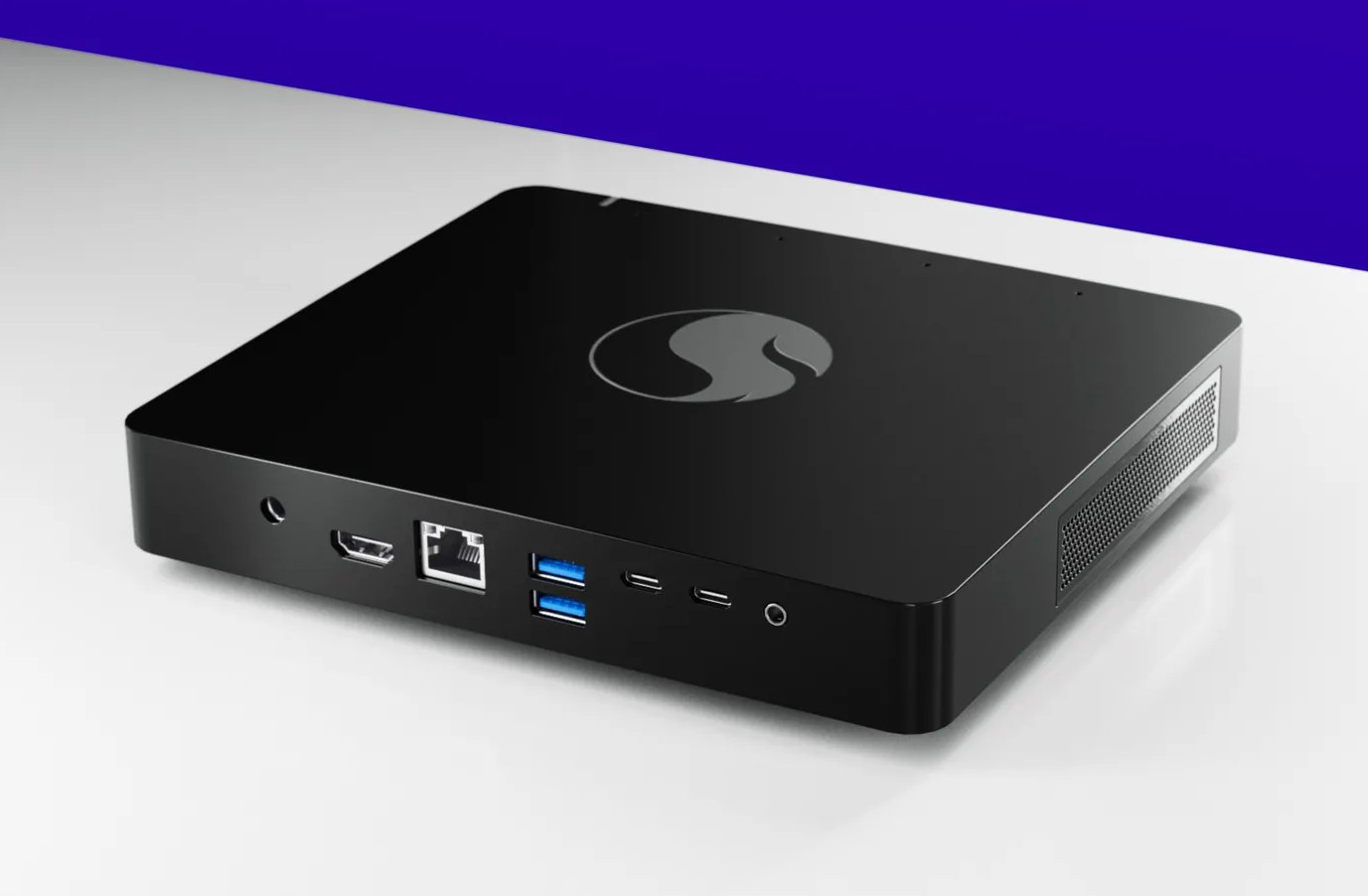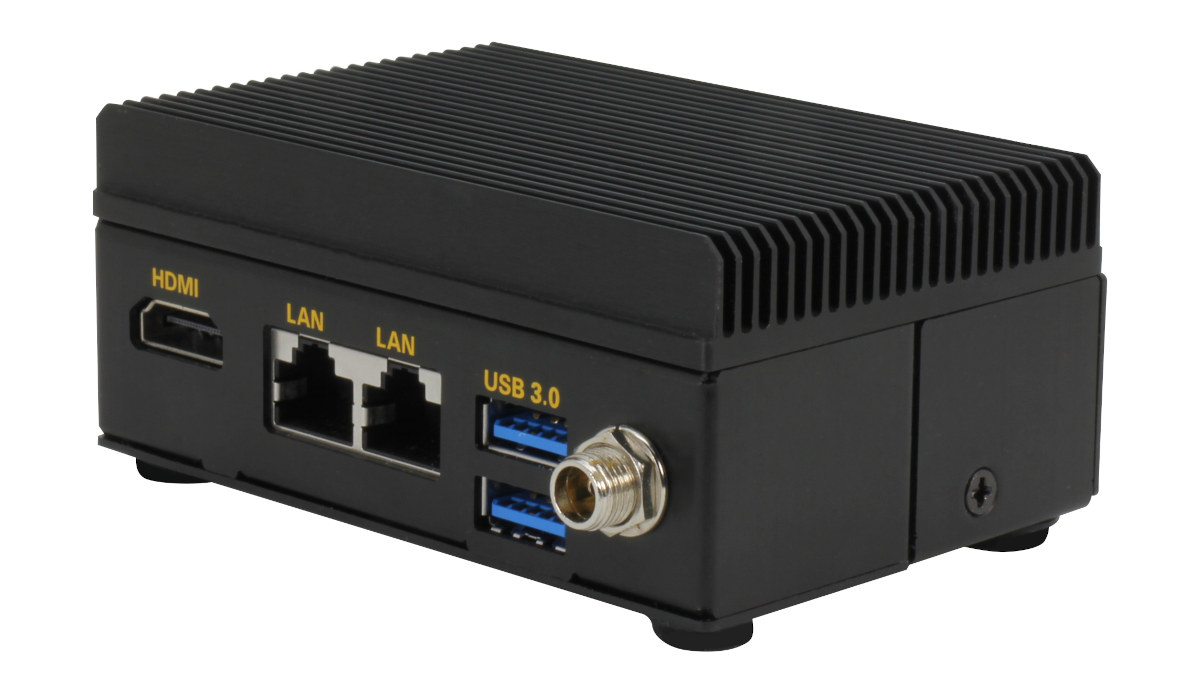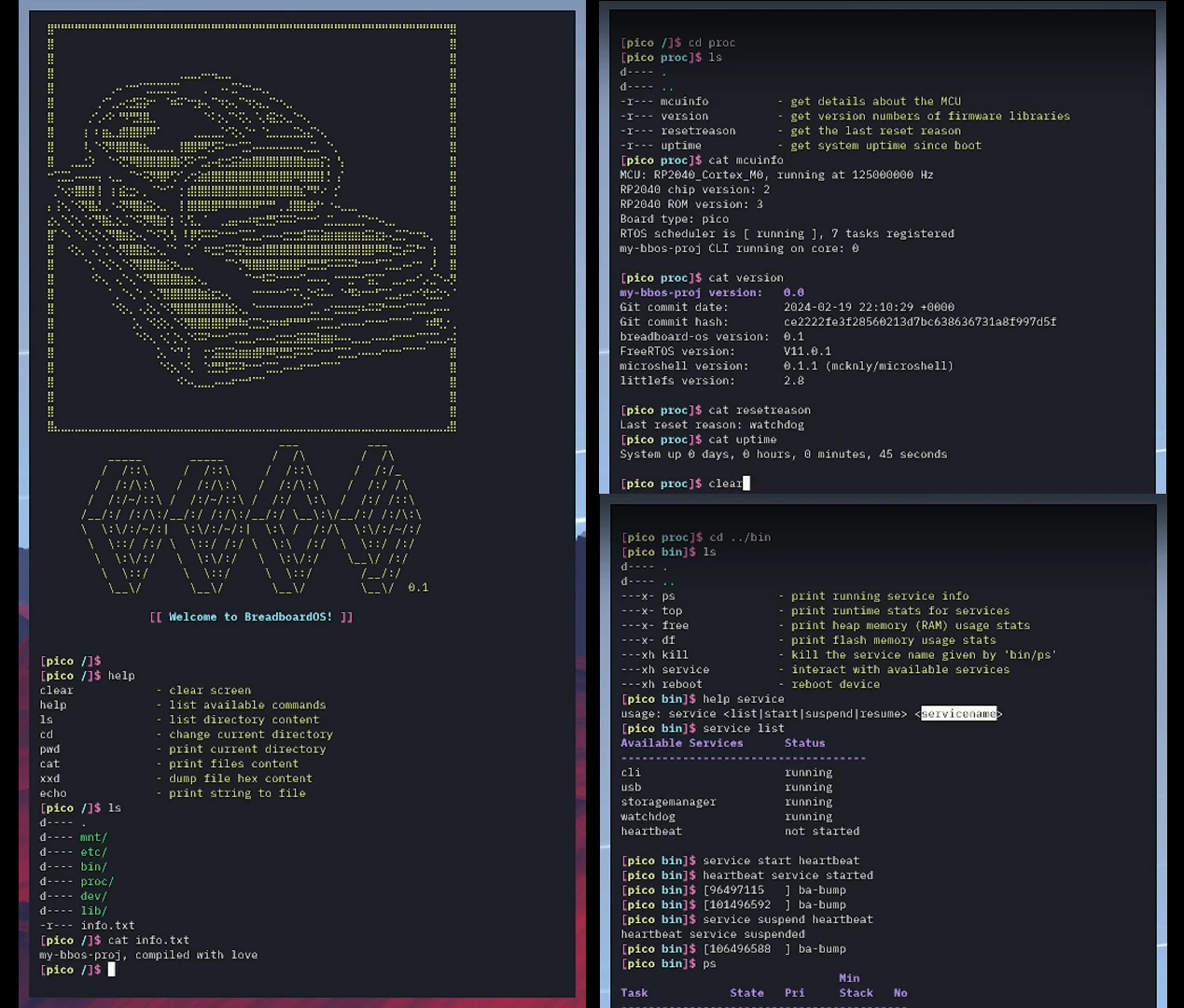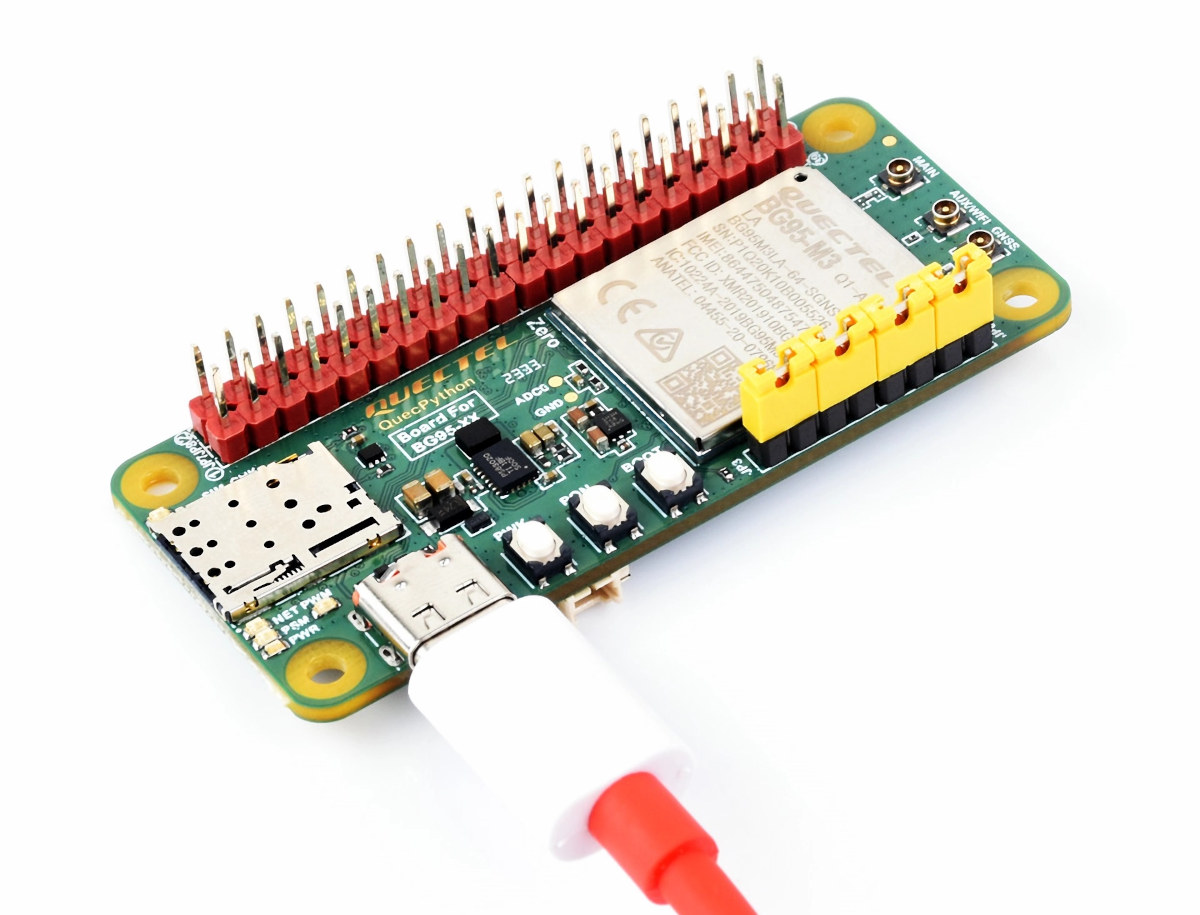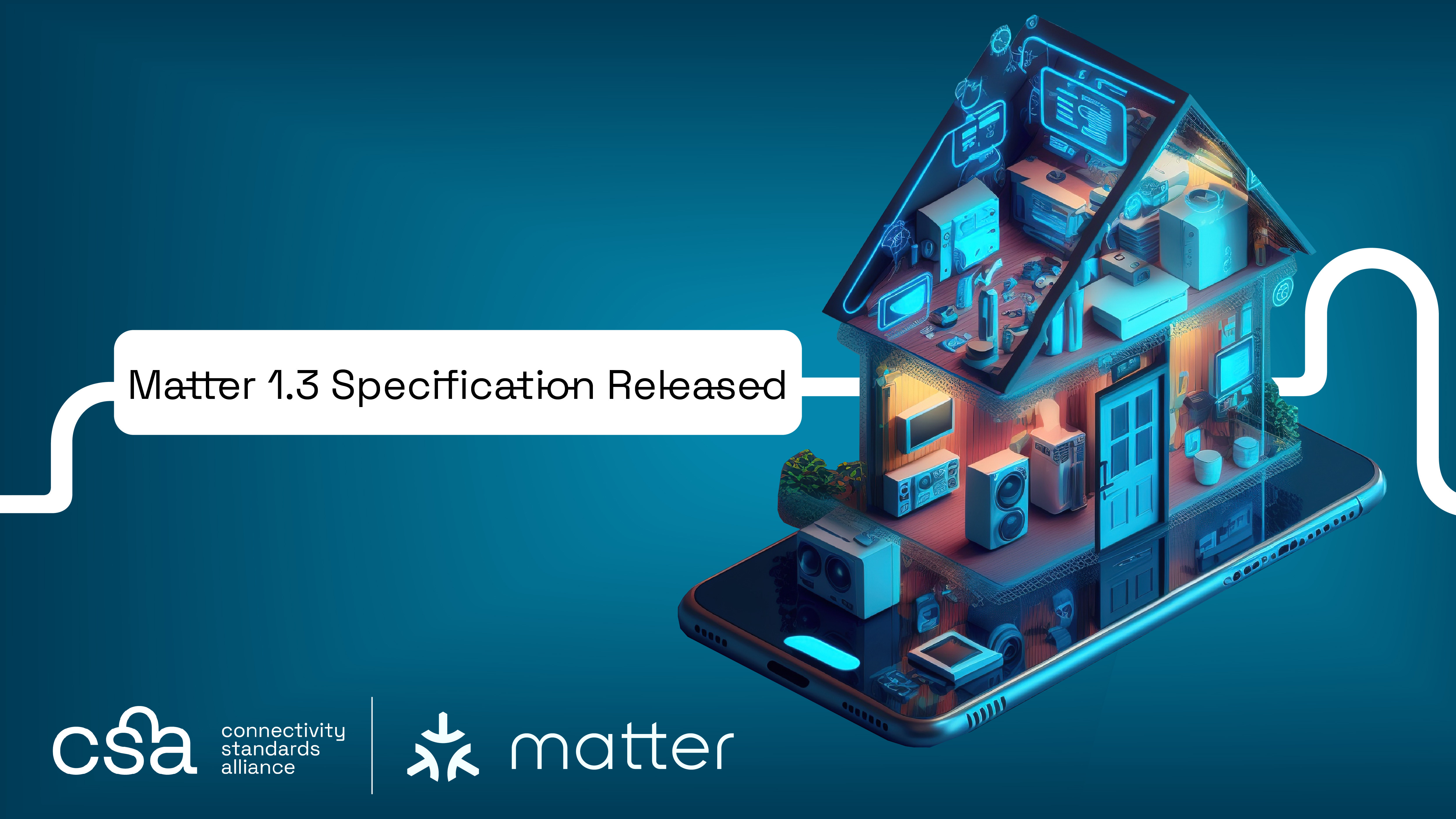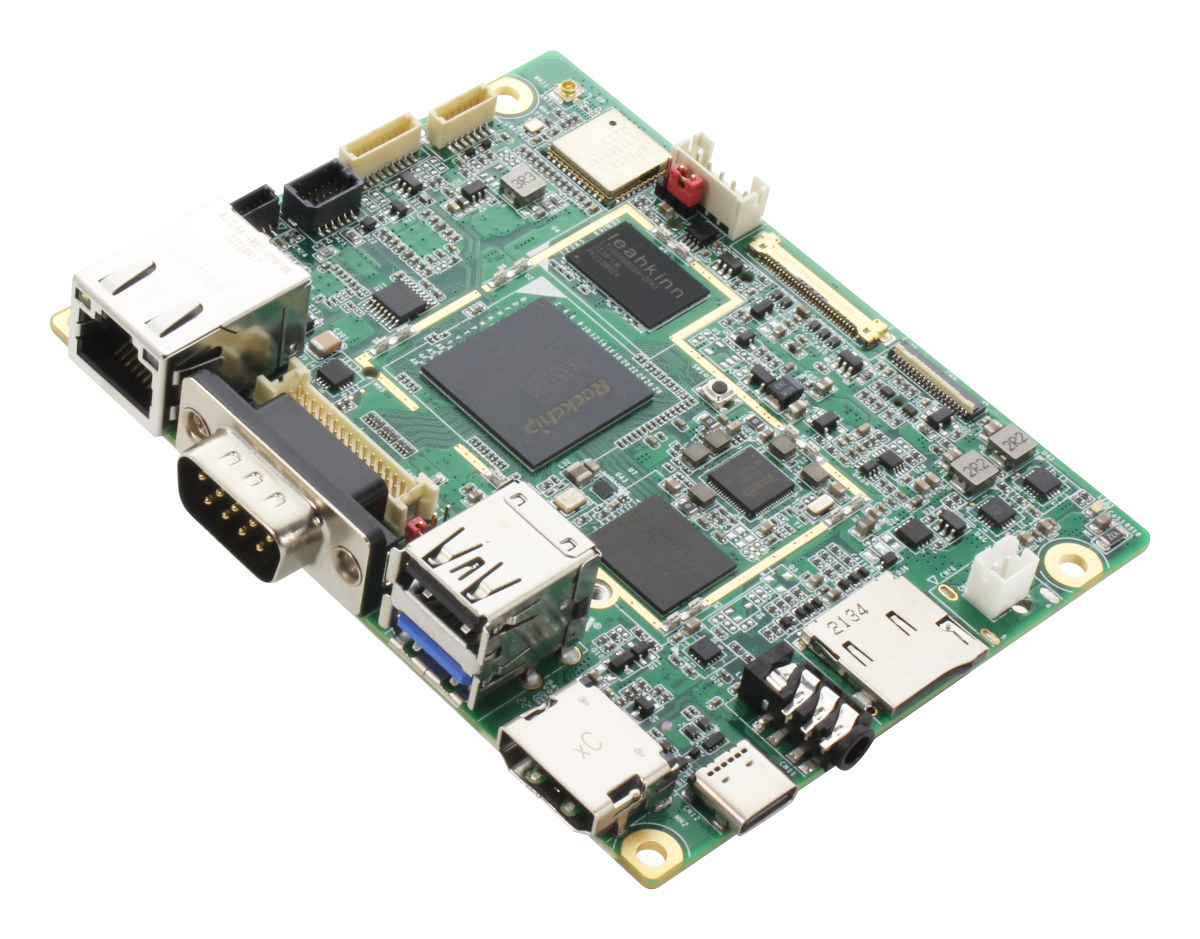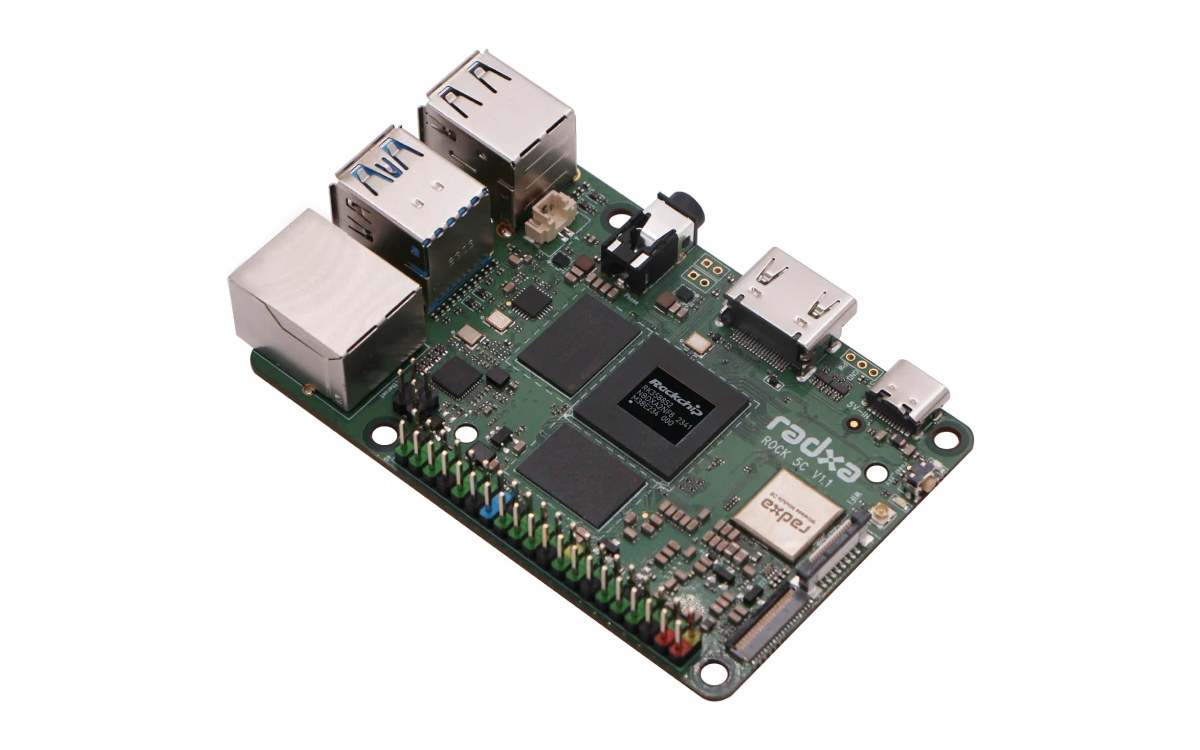Qualcomm Snapdragon Dev Kit for Windows is a mini PC-looking development platform based on the Snapdragon X Elite 12-core Arm processor with up to 75 AI TOPS of performance designed to help developers natively port apps to the Elite X SoC and develop new AI applications besides the Copilot+ AI PC features developed internally by Microsoft. Although it’s slightly bigger, the external design looks similar to the Windows Dev Kit 2023 with a Qualcomm Snapdragon 8cx Gen 3 compute platform, but internally, the new devkit features the much more powerful 4.3 GHz X Elite 12-core 64-bit Armv8 Oryon processor coupled with 32GB LPDDR5x RAM and 512GB NVMe SSD, and offering a range of ports and features such as USB4 and WiFi 7. Snapdragon Dev Kit for Windows (2024) specifications: SoC – Snapdragon X Elite (X1E-00-1DE) CPU – 12-core 64-bit Armv8 Oryon processor clocked at up to 3.8 GHz, or 4.3 […]
de next-TGU8-EZBOX tiny Tiger Lake mini PC is offered with fanless or active-cooling options
AAEON claims the de next-TGU8-EZBOX is the world’s smallest Edge PC with an embedded Intel Core CPU based on the de next-TGU8 SBC introduced in 2022 with an up to up to an Intel Core i7-1185G7E Tiger Lake SoC, 16GB LPDDR4, and M.2 NVMe storage. The de next-TGU8-EZBOX is offered either as a fanless mini PC measuring 95.5 x 69.5 x 42.5mm, or a slightly taller system (45.4mm) with an active cooler. The mini PC features an HDMI port, Gigabit Ethernet and 2.5GbE ports, and USB 3.0. ports making it suitable for edge computing, digital signage, and industrial use. de next-TGU8-EZBOX specifications: SoC Intel Core i7-1185G7E quad-core/octa-thread processor @ 1.80GHz / 4.40GHz with Intel UHD graphics; TDP: 15W (TPD up: 28W); cooler version only Intel Core i5-1145G7E quad-core/octa-thread processor @ 1.50GHz / 4.10GHz with Intel UHD graphics; TDP: 15W (TPD up: 28W); cooler version only Intel Core i3-1115G4E dual-core/quad-thread processor […]
BreadboardOS firmware for the Raspberry Pi RP2040 features a Linux-like terminal
Cavin McKinley’s BreadboardOS is an open-source firmware platform for the Raspberry Pi RP2040 MCU (for now) built around FreeRTOS and with a feature-packed CLI that reminds me of the Linux terminal.
The terminal implementation is based on a fork of the microshell project with some additional customization. It is organized into POSIX-style folders/files providing a familiar user interface for interacting with the hardware on the MCU.
BreadboardOS running on Raspberry Pi Pico board
BreadboardOS highlights:
FreeRTOS-based
Tools for checking system resources such as ps, top, free, and df commands
Interaction with chip I/O and serial buses from the terminal using commands such as cat and echo, for example, you can print the list of GPIOs with:
Raspberry Pi Zero HAT compatible Quectel BG95-M3 Zero cellular IoT board runs QuecPython MicroPython firmware
Waveshare BG95-M3 Zero is a Raspberry Pi Zero-sized SBC based on Quectel BG95-M3 cellular IoT module with LTE Cat M1 (eMTC), LTE Cat NB2 (NB-IoT), and eGPRS connectivity as well as GNSS. The board supports Raspberry Pi HATs and ships with Quectel’s QuecPython MicroPython firmware for easier programming. We’ve previously covered various SBCs and Raspberry Pi HATs based on Quectel modules for cellular IoT and GNSS connectivity with the likes of Olimex NB-IoT-Devkit (with a BC66 module), S-2Connect Creo evaluation kit, Sixfab 5G Modem HAT, and others. Olimex BC66 board supports Arduino programming, but most of the other boards rely on a host processor. Waveshare’s BG95-M3 Zero is a standalone SBC offering compatibility with Raspberry Pi Zero (p)HATs, and Quectel also developed its own MicroPython firmware called QuecPython that works with several of their modules, including the BG95-M3. BG95-M3 Zero specifications: Cellular IoT Module – Quectel BG95-M3 CPU – Arm […]
Matter 1.3 specification adds support for water and energy management, electric vehicle chargers, and various household appliances
The Connectivity Standard Alliance (CSA) has just announced the release of the Matter 1.3 specification and SDK with energy reporting, support for water and energy management devices, electric vehicle chargers, several new “major appliances”, namely various kitchen appliances and laundry dryers, and various other features. As a reminder the Matter protocol was initially introduced several years ago under the name Project CHIP to improve the interoperability of Smart Home devices from various vendors, so for example, users could connect a Matter-compatible Philips Hue light bulb to a Samsung gateway, or a white-brand Matter sensor with Google Home, etc… Matter started to pick last year with several products launched, and Paisit notably reviewed the MINI Extreme Wi-Fi Smart Switch (MINIR4M), the first Matter device from SONOFF, last October. Matter 1.3 adds various new capabilities and devices. Matter 1.3 highlights: Support for Water and Energy Management Devices Energy Management – Matter 1.3 […]
AAEON RICO-3568 is a Pico-ITX Plus board powered by a Rockchip RK3568 SoC
AAEON RICO-3568 is a Pico-ITX Plus single board computer powered by a Rockchip RK3568 quad-core Cortex-A55 AI SoC, up to 8GB LPDDR4, 16GB eMMC flash, four display interfaces (HDMI, LVDS, eDP, MIPI DSI), gigabit Ethernet, and various expansion headers for industrial applications. Most have already heard about the Pico-ITX form factor, but it’s the first time I’ve ever come across a Pico-ITX Plus board. It looks like it’s an AAEON-specific “standard” right now, with the Pico-ITX Plus boards (100x80mm) being slightly wider than Pico-ITX SBCs (100x72mm). AAEON RICO-3568 specifications: SoC – Rockchip RK3568 CPU – Quad-core Cortex A55 processor at up to 2.0 GHz GPU – Mali G52 GPU with support for OpenGL ES 1.1/2.0/3.2, OpenCL 2.0, Vulkan 1.1 VPU 4Kp60 H.264, H.265, VP9, 1080p60 MPEG-4/-2/-1, VP8, and VC1 video decoder 1080p60 H.264/H.265 video encoder AI accelerator – 0.8 TOPS NPU System Memory – 2GB, 4GB, and 8GB LPDDR4 Storage […]
Radxa ROCK 5C (Lite) SBC features Rockchip RK3588S2 or RK3582 SoC, WiFi 6, Raspberry Pi PCIe FFC connector
First came the ROCK 5B pico-ITX SBC, then the Raspberry Pi 4-sized ROCK 5A board, and now Radxa has launched the Radxa ROCK 5C and 5C Lite single board computers powered by respectively Rockchip RK3588S2 octa-core and RK3582 hexa/octa-core “Lottery” processors. The ROCK 5C (Lite) design is very similar to the ROCK 5A, but there are some notable differences. First, it replaces the two micro HDMI ports with a single HDMI port, then it removes the Key M socket for M.2 wireless modules to make place for a built-in WiFi 6 and Bluetooth 5.4 module plus a Raspberry Pi PCIe FFC connector, and finally, the ROCK 5C does not support an SPI flash module anymore. The specifications of the ROCK 5C and ROCK 5 Lite SBC can be found in the table below. Both processors are new, so let’s have a look. First, how does RK3588S2 differ from RK3588S? They […]
/e/OS v2 privacy-focused, Google-free Android mobile OS released with improved UI, Android Auto support, etc..
The e Foundation has just announced the release of the /e/OS v2 Android-based Google-free open-source mobile operating system with an improved launcher, support for Android Auto, a “Wall of Shame” to identify the most leaking apps and tracker, QR Code scanning support in the camera app, and more. Most Android smartphones come with Google services which may be convenient (and help keep Android free), but come at the loss of the users’ privacy. That’s why the e Foundation started offering e/OS over five years ago to offer a privacy-focused version of Android without Google services on specific phones. The project has evolved over the years, over 200 mobile devices are supported officially and unofficially, and Murena, a for-profit company, has also been established to sell e/OS smartphones and cloud services. /e/OS v2 highlights and changes: Based on LineageOS 20 with the latest bug fixes and security updates (itself based on […]


